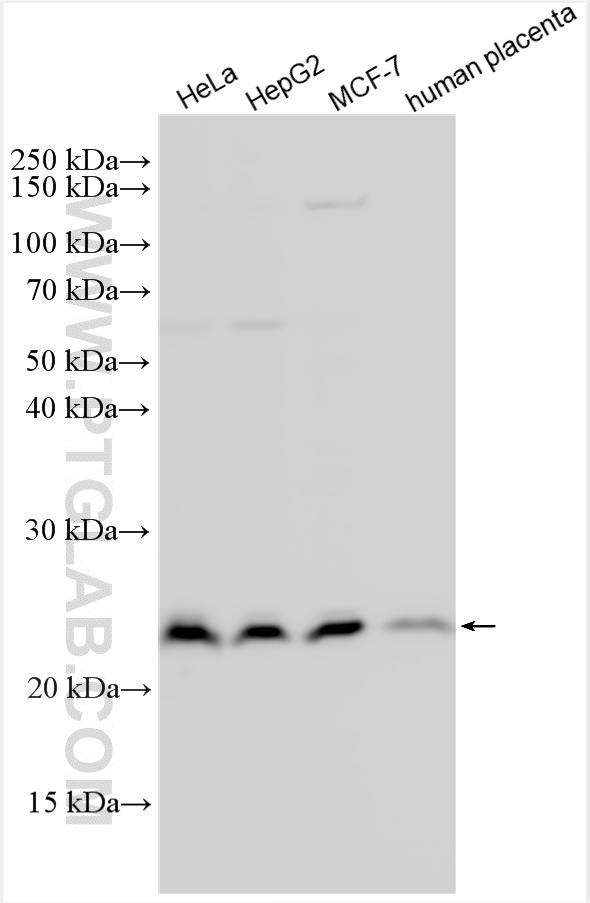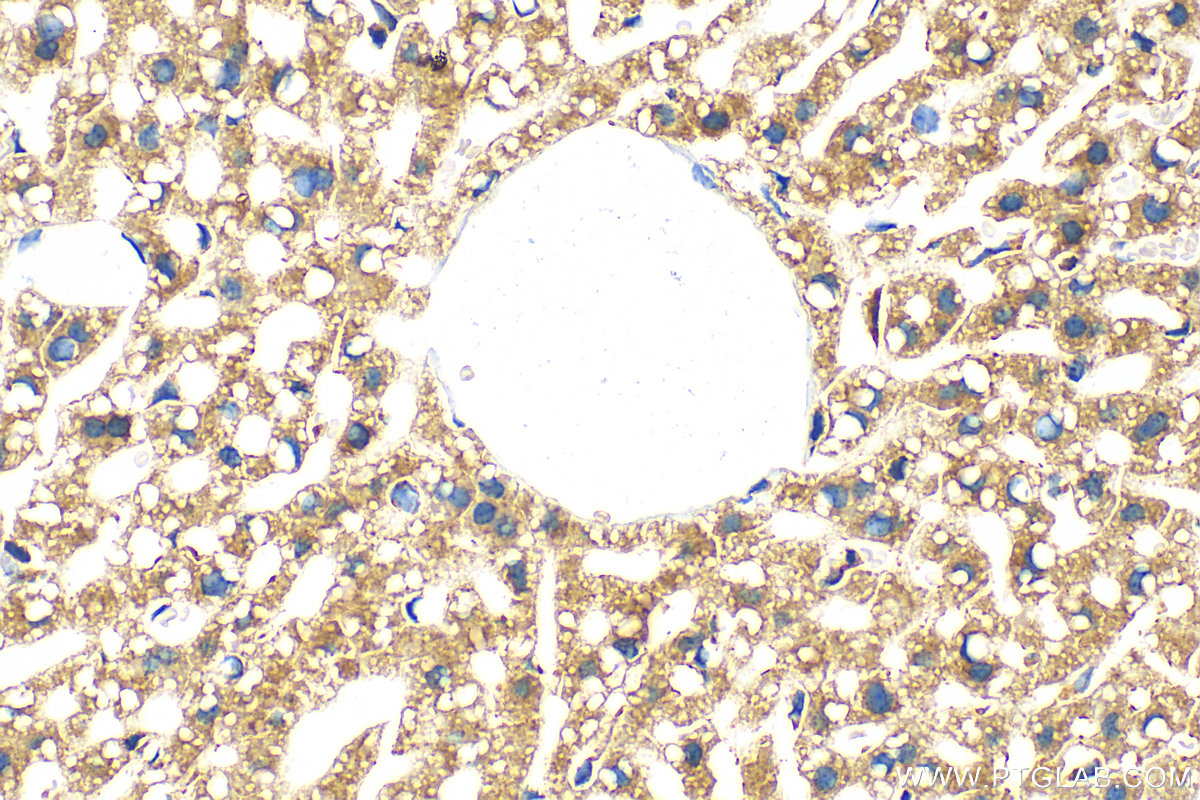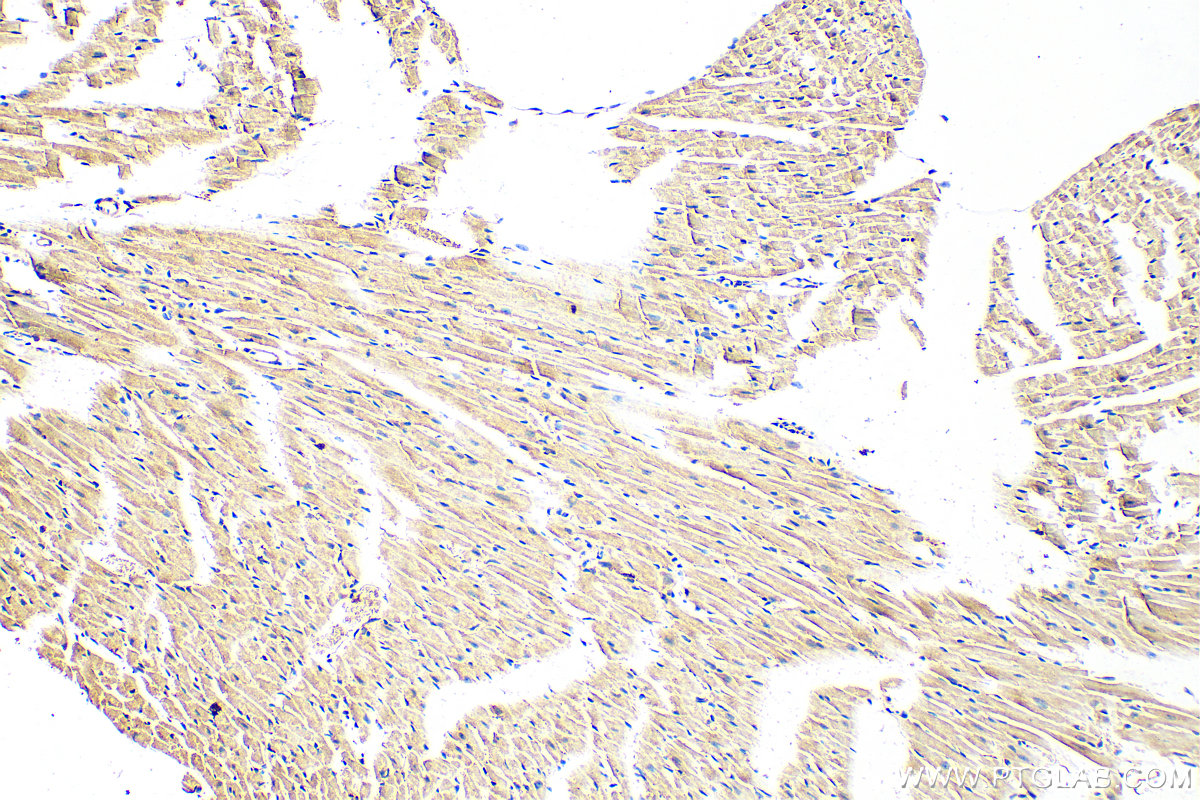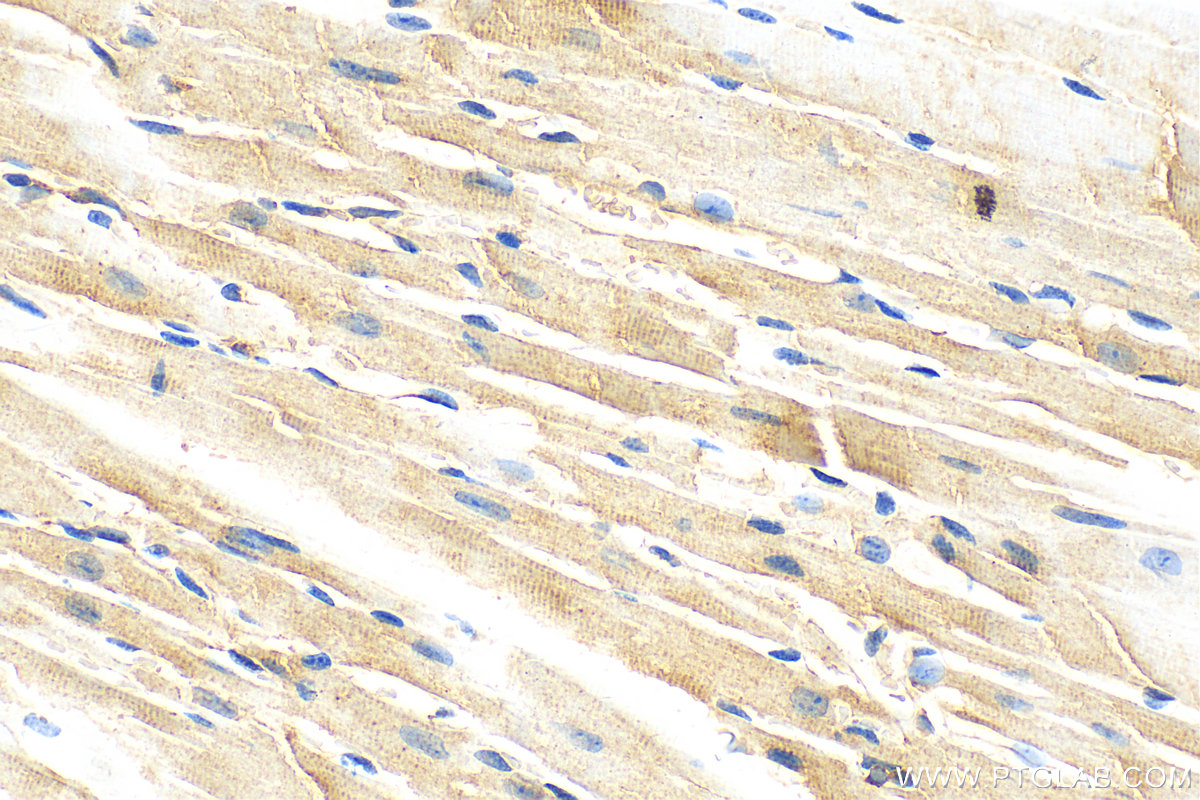验证数据展示
经过测试的应用
| Positive WB detected in | HeLa cells, HepG2 cells, MCF-7 cells, human placenta tissue |
| Positive IHC detected in | mouse liver tissue, mouse heart tissue Note: suggested antigen retrieval with TE buffer pH 9.0; (*) Alternatively, antigen retrieval may be performed with citrate buffer pH 6.0 |
推荐稀释比
| 应用 | 推荐稀释比 |
|---|---|
| Western Blot (WB) | WB : 1:1000-1:4000 |
| Immunohistochemistry (IHC) | IHC : 1:200-1:800 |
| It is recommended that this reagent should be titrated in each testing system to obtain optimal results. | |
| Sample-dependent, Check data in validation data gallery. | |
产品信息
11366-1-AP targets HINT3 in WB, IHC, ELISA applications and shows reactivity with human, mouse samples.
| 经测试应用 | WB, IHC, ELISA Application Description |
| 经测试反应性 | human, mouse |
| 免疫原 | HINT3 fusion protein Ag1912 种属同源性预测 |
| 宿主/亚型 | Rabbit / IgG |
| 抗体类别 | Polyclonal |
| 产品类型 | Antibody |
| 全称 | histidine triad nucleotide binding protein 3 |
| 别名 | HINT 3, HINT3, HINT4 |
| 计算分子量 | 182 aa, 20 kDa |
| 观测分子量 | 20-24 kDa |
| GenBank蛋白编号 | BC015732 |
| 基因名称 | HINT3 |
| Gene ID (NCBI) | 135114 |
| RRID | AB_3669127 |
| 偶联类型 | Unconjugated |
| 形式 | Liquid |
| 纯化方式 | Antigen affinity purification |
| UNIPROT ID | Q9NQE9 |
| 储存缓冲液 | PBS with 0.02% sodium azide and 50% glycerol , pH 7.3 |
| 储存条件 | Store at -20°C. Stable for one year after shipment. Aliquoting is unnecessary for -20oC storage. |
背景介绍
Human Hint3 (hHint3) has been classified as a member of the histidine triad nucleotide (Hint) binding protein subfamily. HIT superfamily consists primarily of nucleoside phosphoramidases, dinucleotide hydrolases, and nucleotidyl transferases. While Hint1 is ubiquitously expressed by both eukaryotes and prokaryotes, Hint3 is found only in eukaryotes.
实验方案
| Product Specific Protocols | |
|---|---|
| WB protocol for HINT3 antibody 11366-1-AP | Download protocol |
| IHC protocol for HINT3 antibody 11366-1-AP | Download protocol |
| Standard Protocols | |
|---|---|
| Click here to view our Standard Protocols |




